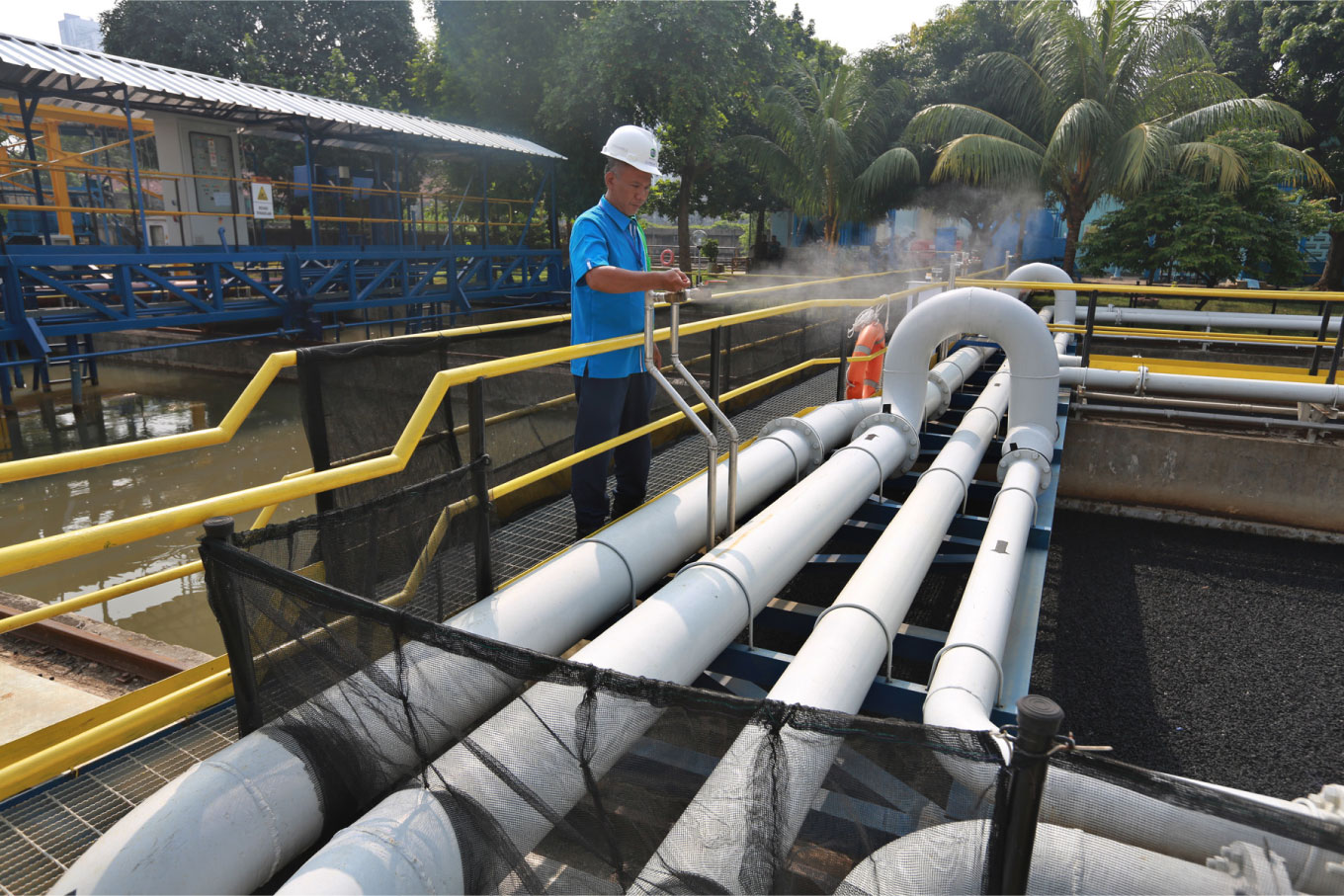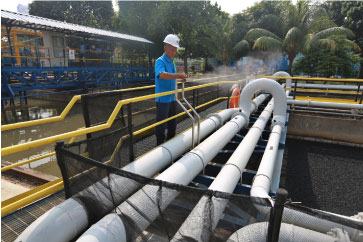Popular Reads
Top Results
Can't find what you're looking for?
View all search resultsPopular Reads
Top Results
Can't find what you're looking for?
View all search resultsJakarta poor still fighting for tap water
Change text size
Gift Premium Articles
to Anyone
 According to Statistics Indonesia (BPS), in 2019 poor household income (with four to five family members) is Rp 3,358,360 (US$ 236.82) per month in Jakarta. Every day one household has to spend Rp 40,000 on clean water or Rp 1.2 million per month, which is 36 percent of monthly income. The poor cannot get piped water because they lack legal property rights. (JP/Ricky Yudhistira)
According to Statistics Indonesia (BPS), in 2019 poor household income (with four to five family members) is Rp 3,358,360 (US$ 236.82) per month in Jakarta. Every day one household has to spend Rp 40,000 on clean water or Rp 1.2 million per month, which is 36 percent of monthly income. The poor cannot get piped water because they lack legal property rights. (JP/Ricky Yudhistira)
C
lean water is an expensive product for most residents of North Jakarta, especially poor households. Not only do they pay more than people who live in apartments, they must work harder to access clean water. They push carts carrying six water containers to a pumping station or wait for a water vendor.
According to Statistics Indonesia (BPS), in 2019 poor household income (with four to five family members) is Rp 3,358,360 (US$ 236.82) per month in Jakarta. Every day one household has to spend Rp 40,000 on clean water or Rp 1.2 million per month, which is 36 percent of monthly income. The poor cannot get piped water because they lack legal property rights.
In the Dutch colonial era, piped water was mostly for the Dutch or European neighborhoods so most of the Europeans had piped water. The poor and indigenous inhabitants had to access water from public water tap or water vendors.
Things did not change for the poor under the capital’s public water utility, PAM Jaya, established in 1968. In the 1970s, only 10 percent of Jakarta’s population could access piped water. The Asian Development Bank reported that piped water service coverage reached up to just 42 percent of 8 million inhabitants of Jakarta in 1990.
In 1991, the World Bank provided a $92 million loan for the PAM Jaya Supply Improvement Project (1990-1997) to supply the urban poor. The initial aim was to install 2,000 public water taps in areas that were unserved by the water supply network and to install 234,000 new household connections. The World Bank reported that the project resulted in more balanced production and distribution capacities. An additional 2.3 million people, including the poor, could access piped water.
In 1997, the water service was handed to two private operators as PAM Jaya signed contracts with France’s Suez and the United Kingdom’s Thames Water. The 25-year contracts became effective on Feb. 1, 1998.
Suez partnered with the Salim Group, owned by a business crony of then-president Soeharto, to form PAM Lyonnaise Jaya (Palyja), while Thames Water established PT Aetra Air Jakarta (Aetra), a joint venture with Soeharto’s son Sigit Harjojudanto. Since then, PT Palyja has served the western zone and PT Aetra the eastern zone. Both have benefited from the favorable contracts, which were not opened to public tender.

















